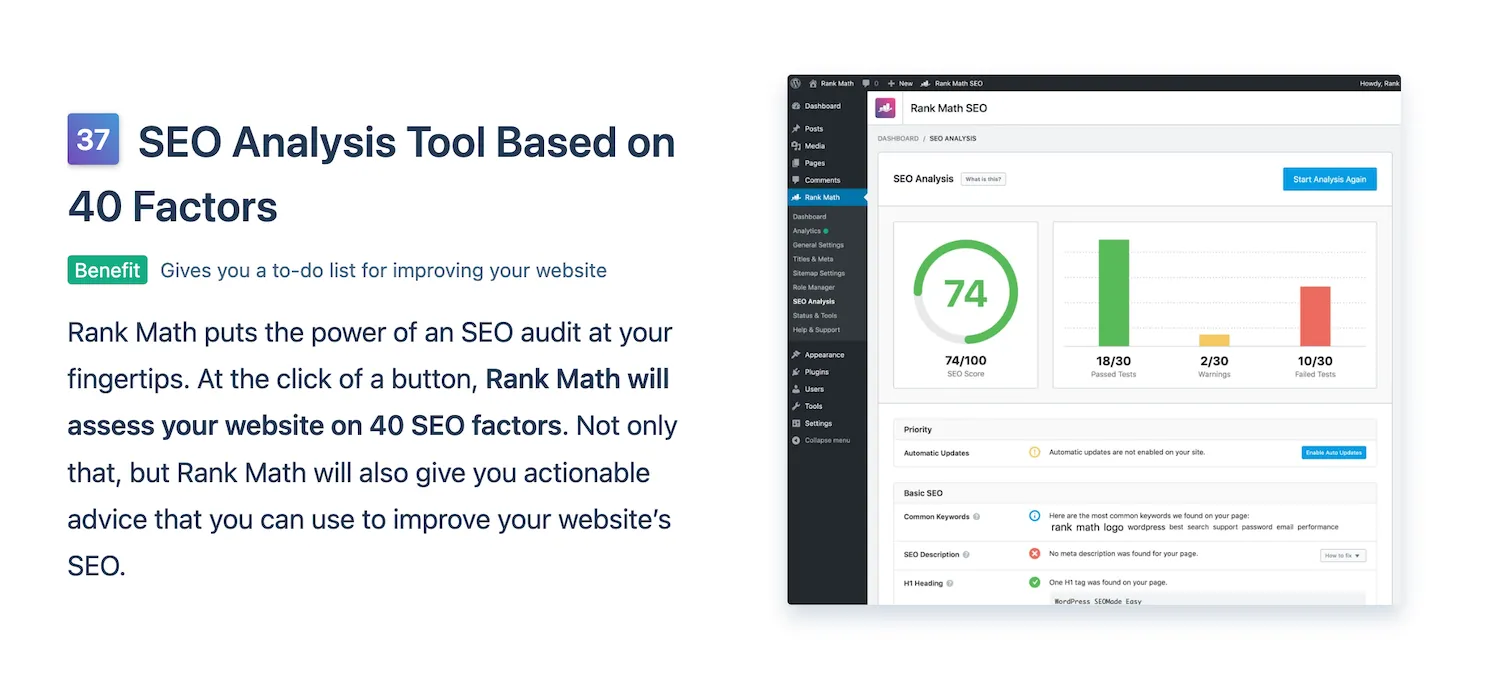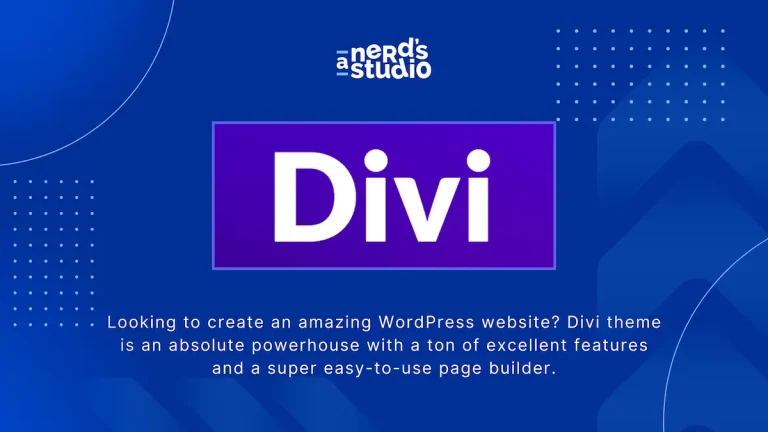Are you having trouble getting search engines to find your WordPress site? Don’t look any further!
With easy-to-follow instructions and practical tips, you’ll learn the basics of SEO, choose the right plugins, optimize your website’s structure, conduct keyword research, create compelling content, implement on-page SEO techniques, and monitor your SEO performance.
In this article, I will show you step-by-step instructions on how to master SEO and make your website more visible.
Get ready to skyrocket your website’s rankings and attract more organic traffic!
My Takeaways
- SEO ranking factors include quality content, keyword optimization, website speed, mobile friendliness, and backlinks.
- SEO plugins like Rank Math SEO and All in One SEO Pack can optimize WordPress websites for search engines.
- Simplify website structure with logical hierarchy and streamline navigation menu for better user experience.
- Conduct keyword research, focusing on long-tail keywords with lower competition and analyzing competitors’ keywords for insights and new opportunities.
How to Master SEO for WordPress Website?
To begin mastering SEO for your WordPress website, you need to grasp the basics of search engine optimization. By learning these basics, you can improve your SEO ranking factors and use SEO best practices.
SEO ranking factors are the things that search engines look at to decide how relevant and important your website is.
Factors such as quality content, keyword optimization, website speed, mobile friendliness, and backlinks all play a crucial role in determining your website’s visibility in search engine results.
To optimize your website, you need to focus on SEO best practices. This includes researching keywords, optimizing meta tags and headings, writing engaging content, and building quality backlinks to use high-ranking keywords correctly.
Your website’s visibility and organic traffic will both increase if you implement these best practices.
Choosing the Right SEO Plugins
Now that you’ve learned the fundamentals of SEO, it’s time to select the best SEO plugins for your WordPress website.
These plugins are critical for optimizing your site for search engines and improving your rankings.
Make sure to consider plugin compatibility and regular updates to ensure that you have the best tools available for your SEO efforts.
Essential SEO Plugins

One of the most important things you can do to make your WordPress site search engine-friendly is to choose the right SEO tools for it. These plugins provide essential features that help improve your website’s visibility and ranking on search engine results pages.
To make the right choice, consider the following:
Rank Math SEO: This plugin offers a comprehensive set of features, including keyword optimization, XML sitemap generation, and content analysis.
All-in-One SEO Pack: Known for its user-friendly interface, this plugin provides features like XML sitemap support, social media integration, and advanced canonical URLs.
When comparing SEO plugins, it’s essential to consider factors like ease of use, compatibility with other plugins, and the level of support provided.
Take the time to research and compare different options to ensure you find the SEO plugin that best meets your website’s needs.
Plugin Compatibility and Updates
When selecting the right SEO plugins for your WordPress website, it is important to consider their compatibility with other plugins and the frequency of their updates.
Plugin compatibility ensures that all the plugins on your website work together seamlessly without causing any conflicts or issues. It’s essential to keep your plugins up-to-date so that you have the newest features, bug fixes, and security patches.
Neglecting to update your plugins can leave your website vulnerable to security breaches and result in poor performance. To help you choose the proper SEO plugins for your WordPress website, here is a table showcasing five popular SEO plugins and their compatibility and update frequency:
| Plugin Name | Compatibility | Update Frequency |
| Rank Math SEO | Excellent | Regular |
| All-in-One SEO Pack | Good | Regular |
| Yoast SEO | Excellent | Regular |
| SEOPress | Excellent | Regular |
| The SEO Framework | Good | Regular |

To optimize your WordPress website’s structure and navigation, you need to focus on creating a clear and user-friendly layout. This will improve the overall user experience and enhance your website’s visibility and search engine rankings.
Here are some key steps to consider:
Simplify your website architecture:
- Use a logical hierarchy of pages and categories to organize your content.
- Utilize breadcrumbs to provide easy navigation and improve user experience.
Streamline your navigation menu:
- Keep your menu items concise and relevant.
- Use descriptive labels and consider adding drop-down menus for subpages.
Conducting Keyword Research for WordPress Websites
Now, let’s talk about how to do keyword research for your WordPress site, building on what we discussed earlier about how to make the layout and navigation of your site work better.
To understand how your target clients are searching for your products or services, it is crucial to conduct keyword research as part of your SEO strategy.
To begin, focus on long-tail keyword research. These are specific, longer phrases that are more targeted and have lower competition. Software like Google Keyword Planner or SEMrush can help you find these keywords.
Additionally, competitor analysis is essential. You can learn about competitor’s tactics and find new keyword opportunities for your own site by looking at the keywords they are ranking for.
Crafting Engaging and SEO-friendly Content
To continue optimizing your WordPress website for SEO, focus on crafting engaging and SEO-friendly content. Writing engaging blog posts is crucial for attracting and retaining readers. Here are two sub-lists to help you create compelling content:
Engaging blog posts:
- Use captivating headlines that grab readers’ attention.
- Use storytelling techniques to make your content interesting and easy to understand.
Optimizing images for SEO:
- Name your files and add alt tags to your images.
- Reduce the size of your pictures to make the page load faster.
By following these tips, you can create content that appeals to readers and ranks well in search engine results.
Now, let’s use on-page SEO techniques to make your WordPress site even more optimized.
Implementing On-Page SEO Techniques
Now that you have crafted engaging and SEO-friendly content, it’s time to focus on implementing on-page SEO techniques.
This involves optimizing your meta tags to improve your website’s visibility in search engine results.
Additionally, strategic keyword placement throughout your content will help search engines understand the relevance and topic of your website.
Lastly, optimizing your content by using headings, bullet points, and internal linking will improve the user experience and search engine rankings.
Meta Tag Optimization
First, optimize your meta tags to implement effective on-page SEO techniques for your WordPress website. Meta tags play a crucial role in search engine rankings, so it’s important to optimize them correctly.
Here are some of the best ways to optimize meta tags for WordPress websites:
Title Tag:
- Include relevant keywords at the beginning of the title tag.
- Keep the title tag concise and within 60 characters.
Meta Description:
- Write a compelling and concise meta-description that accurately describes the content.
- Include relevant keywords to attract users’ attention.
Optimizing your meta tags helps search engines understand the content of your web pages, improving your chances of ranking higher in search results.
Let’s move on to the next section about keyword placement strategies.
Keyword Placement Strategies
Once you have optimized your meta tags, it’s time to delve into effective keyword placement strategies to implement on-page SEO techniques for your WordPress website.
One important strategy is to use long-tail keywords effectively. These keyword phrases are longer, more detailed, and aimed at a specific group of people. Search engines will rank your website higher, increasing the likelihood that visitors who are interested in what you have to offer will visit.
Another strategy to consider is optimizing your WordPress website for local SEO. This involves incorporating location-based keywords into your content, meta tags, and URLs to target customers in specific geographic areas.
By doing so, you can improve your visibility for location-based searches and attract more local customers.
Now that you understand keyword placement strategies, let’s move on to the next section about content optimization tips.
Content Optimization Tips
It’s important to focus on content optimization and use on-page SEO methods to make your WordPress site search engine-friendly.
These techniques will improve your website’s visibility and attract more organic traffic. Here are some content optimization tips to help you get started:
- Make a detailed content plan that fits your business goals and the people you want to reach.
- Do keyword research to find important keywords, then use them naturally in the content of your website.
- Make content that is useful, interesting, and of high quality for your readers.
- Make sure your meta tags, such as title tags and meta descriptions, are optimized to raise your website’s visibility in search engine results.
- Implement effective internal linking strategies to improve website navigation and enhance the user experience.
- Build high-quality external links to establish credibility and authority in your industry.
By implementing these content optimization techniques, you can enhance your website’s visibility and attract more organic traffic.
Now, let’s move on to the next section, where we’ll discuss monitoring and analyzing SEO performance.
Monitoring and Analyzing SEO Performance
You can effectively monitor and analyze the performance of your SEO on WordPress websites. One way to do this is by implementing SEO performance tracking through Google Analytics integration.
You can get useful information about your SEO efforts by adding Google Analytics to your WordPress site. You can keep an eye on things like keyword results, organic search traffic, bounce rate, and conversion rate.
This data will help you understand how well your SEO strategies are performing and identify areas for improvement.
Additionally, Google Analytics provides reports and visualizations that make it easy to analyze your SEO performance over time. You may optimize your WordPress website for improved search engine rankings by routinely checking and assessing your SEO performance.
Wrap-Up
Congratulations! You’ve now unlocked the secrets to mastering SEO for your WordPress website.
By understanding the basics, choosing the right plugins, optimizing your website structure, conducting keyword research, crafting engaging content, implementing on-page SEO techniques, and monitoring your performance, you’re well on your way to driving more traffic and boosting your online presence.
What kinds of blogs or websites do you want to optimize? Are there any challenges you’re facing? Let me know in the comments below.







